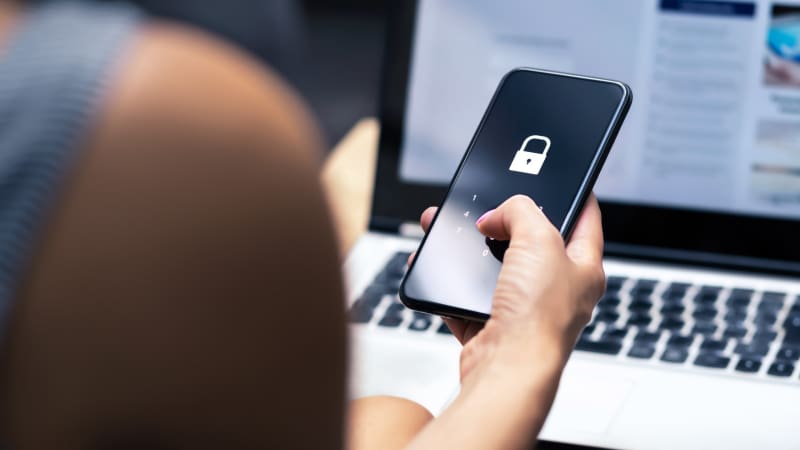When, where and how to report identity theft

When someone steals your identity, your first instinct might be to panic or feel overwhelmed. But the sooner you report identity theft, the better. First, let's look at some reasons why you may want to take these steps as soon as possible.
When to report identity theft
There are some telltale signs of identity theft that may warrant a report. These may include:
- Odd collection notices or calls: If you receive mailings or notifications for unfamiliar accounts, this may mean there are open credit cards or loans in your name.
- Denied credit applications: If you’ve previously established strong credit only to get rejected for a standard credit application, it may warrant some investigation. This could be as simple as taking a look at your credit report or score.
- Unexplained charges or withdrawals: Creditor notifications about unusual activity on your accounts can sometimes signal identity theft. Rather than responding to the notification, you may want to contact the creditor directly.
- Medical bills for doctors you haven't visited: Bills from any service provider you don’t use or haven’t seen recently can be cause for suspicion. So, a smart first step may be to contact the provider and use the bills you received for reference in your communication.
- New credit cards you didn't apply for: Some businesses, such as furniture or clothing stores, offer online access to credit cards and lines of credit while you shop their website. So, it’s possible to make purchases online immediately after filling out a credit application. Keep that in mind if you get a new, unfamiliar credit card in the mail — it may already carry a balance.
Some suspicious instances may not seem clear cut but could still make you wonder if your identity has been breached. In these cases, a service like Chase Credit Journey’s® identity monitoring can help by flagging changes in your credit accounts, report and score. In fact, you can access your credit score free without impacting it with Chase Credit Journey.
Where to report identity theft
There are many types of identity theft and therefore several places to notify if it happens to you. You may wonder where to begin. You can start with the credit card companies and three major credit bureaus: Experian™, Equifax® and TransUnion®. They can help prevent damage to your credit the sooner you contact them and can put a freeze on your accounts. Here are some additional places where you can report identity theft.
- Medical: If you experience medical fraud, you can contact the U.S. Department of Health and Human Services to report identity theft by visiting their website, emailing them or sending a letter through postal mail. It can help to address these reports to the Office of the Inspector General.
- Employment/Unemployment: When someone uses your identity for employment or to file for unemployment benefits, the US Department of Labor can be a key place to contact. You can file a report through the website, via email or with a snail mail letter. The Employment and Training Administration handles these matters, so you can reach them more directly through that department.
- Taxes: If you receive an unfamiliar tax notice or bill, it’s possible your identity was breached for tax refund purposes. The IRS can help in these instances. So, they’re a smart place to start when reporting tax identity theft. They can be reached online, by phone, email or through postal mail.
- Police inquiry: Many identity theft cases request a police report as an official record of the breach and consequences. You can start with a call to your local police station.
How to report identity theft
Identity theft can be stressful, and reporting it involves various steps. So, a checklist might help. Here are some specific steps to guide you in the event of identity theft. In some cases, the reporting may be easier than others.
- Call your credit card companies to notify them of the breach.
- Contact the Federal Trade Commission (FTC) via their website, email or phone.
- Call your local police station to make a claim.
- File a report with the three major credit bureaus.
Reporting to your credit card companies
You can call the number on the back of the card in question, if you still have it on hand. This could help ease your mind at the onset because it means at least your card numbers can’t be used without your consent while they’re frozen. Be sure to have key information and details ready, like your card or account number, the unusual activity, the date of the activity, etc.
If you don’t have your card handy, you can locate the company’s contact number with an internet search or by checking an old bill. Locating an old credit card bill may be particularly helpful because it may also include your account number and other details for the reporting process.
Contacting the Federal Trade Commission (FTC)
The FTC is a government agency with a fraud department set up especially for identity theft reports. You can report your case on their website, by phone or via e-mail. They will give you a confirmation number and often connect you with a local police contact designated for your situation.
Reporting to the police
To file an identity theft report with the police, you may want to assemble evidence of the breach. This can include the following:
- Your identification, which may include your driver’s license or passport
- A utility, phone bill or another official mailing for proof of address
- Your social security number and date of birth
- A written account of the fraud. This can include copies of the fraudulent activity and detailed account information for each instance. These documents are also often required for credit card and loan companies. So, it may be in your best interest to make copies for dual usage.
How do I report identity theft to the credit bureaus?
Once you have filed an identity theft report with the police, you can file a report with the three major credit bureaus (Experian, Equifax and TransUnion) which can help you begin your identity theft recovery process.
It can help to start with a visit to their websites. There you can find instructions to file a fraud alert either on the site or through postal mail. If you choose to file through the website, it may involve uploading your documents to the site. That can include scans of your identification as well as documented evidence of the fraud. This documentation may include:
- Your full name, social security number and birth date
- A copy of your identification such as a driver’s license or passport
- Proof of your address such as an insurance or utility notice
- An identity theft report filed through your police department
For verification purposes, you may want to send documentation to report identity theft via certified mail which can provide you with a notification for when your documents are received by the bureaus. This can help give you some peace of mind while you work through the steps for recovering from identity theft.
In summary
The stress of fraud need not get in the way when you need to report identity theft and start your recovery process. With this checklist in hand and helpful resources such as Chase Credit Journey by your side, you can get started on the path to credit restoration today.



